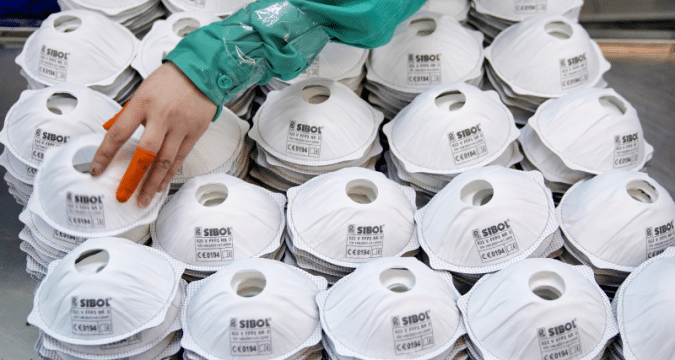
CHINA (UCAN): China has relaxed its crackdown on unofficial religious groups amid the intense fight against the Covid-19 coronavirus (SARS-CoV-2), but some Christian leaders feel the freedom could be short-lived.
Since Chinese New Year, which fell on January 25, the harassment of Christians belonging to unofficial communities has eased as most officials have been engaged in fighting the raging pandemic, said Father Paul, a priest of the unofficial Church in Yunnan province.
The crackdown on unapproved Churches continued unabated even after September 2018 when the Vatican and China signed an agreement on the appointment of bishops.
Over the past two years, authorities have not allowed Christian groups to post customary spring messages with Christian blessings or prayers on the entrances of their churches or houses, Father Paul said.
“If Catholics post such messages on churches or houses, governmental agents will tear them off,” the priest said.
However, during this new year, “local Catholics posted the spring couplets and they were not torn off. Maybe the officials were busy fighting the epidemic,” Father Paul surmised.
The Covid-19 pandemic was first reported in Wuhan, Hubei province, in late December. By mid-January, the entire Chinese bureaucracy was busy fighting the disease that has officially killed some 3,335 people in China.
Teresa Yan, who is with the unofficial Church in Shenyang, said “it may be possible the officials see no need to regulate. People are closed up in their own homes because of the pandemic. Priests can’t go anywhere and no sacraments can be administered.”
Joseph He, who is with the unofficial community in Jiangsu, said that after a lockdown was recently relaxed in their area, a priest celebrated Mass at his house during the day. “That was not possible earlier. Priests were celebrating Mass in secret, mostly at night,” he said.
Father Ma of the unofficial Church in Henan, returned to his hometown just before the lockdown and used the opportunity to celebrate Mass and conduct Bible classes for Christians in the village.
“Everyone in the village knows each other well. After the village was closed, activities were relatively freer and no one could get out anyway. Government officials did not enter the village either,” the priest said.
He said they had a church but the government closed it down. “So we found a place to celebrate Mass, but it was also constantly under state surveillance. Now we have no fixed place. We celebrate Mass at (the) homes of parishioners,” he said.
‘Relaxation is not policy’
The relaxation in individual events cannot be a policy change of the state, warned Chan Shun-hing, a professor in the department of religion and philosophy at Hong Kong Baptist University.
The easing of surveillance and leaving Christian actions unchecked were the results of the state lacking thousands of officials who were needed to deal with the pandemic, the scholar said.
He warned that after normalcy returns to social life, the unofficial Church will be targeted again with stricter surveillance.
“Understand the political system. It cannot leave the underground free. Now, the workforce is temporarily transferred, but the problem still exists,” Chan said.
Since unofficial Churches are now relatively free, priests can consider teaching about public health, personal hygiene or encouraging and strengthening people to help one another.
If priests can lead parishioners in a humanitarian role helping those in need, “that can become a good testimony too even if they do it without declaring them to be Christians,” Chan said.
Chan said many criticised how the government handled the virus, accusing the state of violating basic human rights such as freedom of speech and communication, which exacerbated the epidemic. Within the party itself, some began to challenge the autocracy of the president, Xi Jinping.
If the situation continues and critics gain strength “there is a possibility of the political policies of the Chinese Communist Party experiencing some shake (up).”









